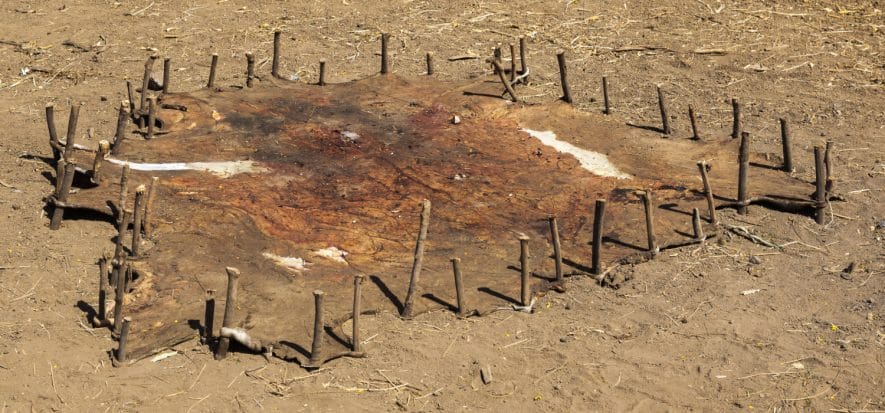Ethiopia’s government have removed a 150% duty formerly imposed on wet blue and pickled leather. Due to such tax, first implemented in 2008, exports of raw hides and skins and semi-finished products had actually come to a standstill. According to local press, and reported by leatherbiz.com, the government hopes that the industry will benefit, to some extent, from this decision. For the records, a downturn in the international demand for finished leather is currently affecting Ethiopia’s industry.
Removing 150% duty on wet blue and pickled leather
When they first imposed the duty, Ethiopia’s government was aiming to set up an economic system, in the country, “similar to the Indian one”. What does it mean? In other words, they wanted to create a domestic leather industry and enable it to handle all the processing stages and, consequently, sell abroad its finished products. It did not work though. Ugo Mereghetti, from Fulmer Nuova (based in Brescia), made clear, on the issue n.6 of La Conceria magazine, that Ethiopia should have liberalized their exports. Such action would not have been enough, anyway, to foster a quick recovery of the industry.
Expectations
In Mereghetti’s opinion, “they should get back to wet blue and pickled leather. Then, it would take 6 to 8 years to restore high quality standards in local tanneries, as they used to be many years ago. On top of that, they should successfully manage to build up some further tanning stages, while mutually liaising with a few international partners. Of course, tanneries should decline in number, therefore augmenting market shares and opportunities for each of them”.
Domestic leather industry is quivering
“Small companies, which have created thousands of job posts, will be undoubtedly affected by the duty removal. In addition, such decision might cause a shortage of leather in the local market. That is why government had better find a fair compromise”. Ermias Hassen, general manager of Gosh Leather Products Factory, spoke it out. The manager asked Ethiopia’s government to safeguard and take care of local manufacturing companies. “Officials miss the point: if they provide small businesses with benefits – he wrapped up – our investments will have a huge impact on the overall economy of the nation. Why? Because, unlike foreign investors, we plough back 100% of our profits in our country”.
Picture taken from Shutterstock











